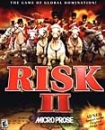dmillos said:
| The_Liquid_Laser said: I see you are doing a lot of analysis of the data, especially what percentage of sales come during a system's 2nd 60 months. I would ask that you look at the year each of these systems had their sales peak. I think you will find a strong correlation here. The systems that peak later tend to have a greater % of sales in the second 60 months. I am saying this because Switch is obviously peaking later than most Nintendo systems. If Switch is peaking this year, then we can still expect a large % of sales to be in the second 60 months. |
Hi @The_Liquid_Laser Thank you for your idea, it is definitely fun to look at all these different angles, here is the same chart but with the peak years: 
A few things to highlight are: 1) GBA had its peak year on year 4 but it still sold much less in the second half. I checked that out and it coincides with the release of the DS on its year 5. 2)PS4 should be able to climb up this list , even with a slight chance to catch up to X360 and maybe even DS. 3)XONE probably won't reach the 3DS, and the 3DS peaked on its first 12 months. 4)I still want to know how did the N64 peak so early! I would love it if anyone has sales data for Playstation and Sega consoles. 5) With regards to the switch, if this is its peak year, and it has similar second half than year 4 consoles, then it should sell about 30 million plus what it sells in 2021, so the end total should be near 130 million. Here is where I think that it is important to not look at data to predict but rather to question. This was an unprecedented year, the switch is in new territory with it being the only console nintendo is focusing on. It is probable that this ends up being the NS peak year, it increased over 40% from last year. But this doesn't really mean it is going to behave like other consoles did. Personally I think the NS should easily be second place on this table. 6) Another extremely important factor that really is not seen here... But maybe I should look into adding it. Is when a new console got released, There are two reasons a console has poor second half. The first is that it simply peaks early like the WiiU, but the second is that a new Console is released like the GBA or even the DS. | 










































